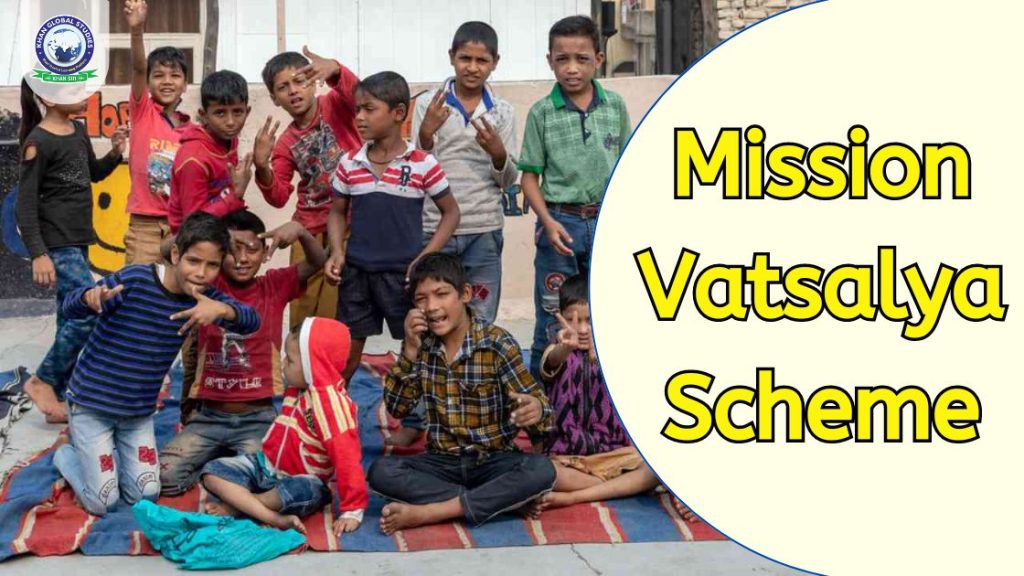Mission Vatsalya Scheme is a state government program launched in 2021 to provide financial assistance to children who have lost both parents or have lost the sole earning parent due to COVID-19. The objective of the system is to support these vulnerable children economically and ensure their well-being.
What is the Mission Vatsalya Scheme?
Mission Vatsalya program is a project sponsored by the Government of India to help children who have lost their parents due to the COVID-19 pandemic. The scheme was announced in May 2021 during the second wave of the pandemic, when the number of cases and deaths in India reached its highest-ever level. The Mission Vatsalya program provides financial assistance, education and healthcare to children who have lost their parents due to COVID-19. The system aims to ensure that these children are not orphaned and that they grow up in a safe and supportive environment.
Background of Mission Vatsalya Scheme
- Previously, three programs were implemented under the Ministry of Women and Child Development, namely the Juvenile Justice Program for children in need of care and protection and children in conflict with law; the Integrated Program for Street Children; and the Orphanage Support Programme.
- In 2009–2010, all three schemes were merged into a single centrally sponsored scheme known as the Integrated Child Protection Scheme (ICPS).
- In 2017, the program’s name was changed to “Child Protection Services”. As of 2021–2022, the CPS program is now part of Vatsalya’s mandate.
The objective of Mission Vatsalya Scheme
- The mission aims to prioritize the best interests of children by implementing programs and initiatives that ensure their rights to survival, development, security and participation.
- It aims to improve basic services such as emergency outreach, non-institutional care, counselling and support services and collaborate with affiliated systems for seamless service delivery to children at all levels.
- The Mission also seeks to empower families and communities to identify and prevent risks and vulnerabilities affecting children and promote private sector involvement to support children within the law.
- Its purpose is to raise public awareness and educate the community about child rights and government-sponsored protective measures.
- To ensure effective implementation, the Mission will track the development of objective parameters related to outputs and outcomes, and regular monitoring by Panchayats and Municipal Local Bodies at village, ward and urban cluster levels to build a strong social safety net for children.
Features of Mission Vatsalya Scheme
- The Ministry of Women and Child Development has implemented the Mission Vatsalya Scheme to support children’s welfare and safety. The scheme includes a monthly grant of Rs 4000/- per child for family-based non-institutional care, such as sponsorship (kinship), foster care, or after-care.
- The scheme also provides support for 24×7 helpline service for children in partnership with states and districts as defined under the JJ Act, 2015. It envisages the setting up of Cradle Baby Reception Center in at least one Special Adoption Agency (SAA). In every district to rescue abandoned children.
- The Mission emphasizes the need for States/UTs to focus on placing children with special needs, who are physically/mentally disabled and unable to go to school, in Child Care Institutions (CCIs).
- Under the guidelines, Mission Vatsalya will assist the State Adoption Resource Agencies (SARA), which will assist the Central Adoption Resource Authority (CARA) in promoting adoption.
- Separate children’s homes will be set up based on gender (including separate homes for transgender children) and age for children in need of care and children with special needs.
- The State Government will be encouraged to set up open shelters to take care of children who are homeless, missing, victims of trafficking, working class, living on the streets, beggars, drug addicts etc.
Benefits of Mission Vatsalya
The mission provides a multi-pronged approach to protect vulnerable children. Here’s how they benefit:
- Improving overall well-being: By ensuring access to basic needs, health care and education, Mission Vatsalya promotes a healthy and safe environment for the development of children.
- Empowerment: The scheme equips children with the tools they need to reach their full potential through education and legal aid.
- Vulnerability Reduction: By prioritizing family-based care and strengthening child protection mechanisms, Mission Vatsalya helps protect children from abuse and exploitation.
Looking Ahead
Mission Vatsalya is an important step towards ensuring the well-being of India’s children. The continued success of the Mission depends on its effective implementation at the state and district level. Community participation and collaboration with NGOs are also important to building a strong support system for vulnerable children.




